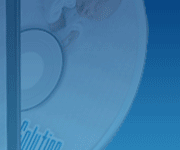Here's a fascinating experiment! Would you try it?
Adult 'preemies' get NICU treatment
By Lois M. Collins
Deseret News
Published: Friday, Jan. 9, 2009 1:06 a.m. MST
The room is dark and mostly silent, except for the sound of a heartbeat that seems to reverberate everywhere. "Baby" lies on the floor, eyes closed and peaceful. Then the doors fling open and noisy people rush in, grasping at Baby, repositioning her, using a tongue depressor the size of a paint stirrer and taping an oversized straw in her mouth. At 28 weeks' gestation, she's about to be admitted to intensive care, with all the testing that entails.
Strangers fuss with her diaper and someone positions an ice-cold stethoscope. Before they're done, she will have had cold liquid on her skin, been talked to VERY loudly and had lights shined in her pried-open eyes. The tape that secures the tube in her mouth will be pulled off — and probably re-applied and pulled off again.
It's enough to make a grown Baby want to cry, as the adult volunteers playing Baby learned in a special training Thursday called "Preemie for a Day" at University Hospital.
Imagine how all the poking and fussing feels to actual preemies in an intensive care unit, said Kay Johnson and Michelle Waddell, child development experts from Children's Medical Ventures, which presents the training worldwide. The session was sponsored by the hospital and March of Dimes, which has a family support program in the U. Neonatal Intensive Care Unit, said spokesman Stephen McDonald.
At times the volunteer babies had trouble stifling laughter, but the message was serious: Little things like shielding a real preemie's eyes from the light or warming gel before applying it make a huge difference. And stress is harmful not only to healing, but to development.
Later, Johnson said, some of the volunteers will say they were cold. That's easily fixed. Some will say it was too loud. That's something staff can change, too.
This type of training is not just about comfort. Proper handling aids a premature baby's brain development — and certain things can disrupt it. It's possible, for instance, to bypass complete auditory development as you push visual stimulation. Poor positioning can set up later problems with receptiveness to touch and body alignment and more.
The training also helps staff deal with and guide the stressed-out families of preemies. Take touch: preemies have different tolerance for it. Education and collaboration helps families figure out what pleases and soothes the baby. Petting, for instance, may irritate the baby but is instinctual for some parents.
Johnson emphasized the need for NICUs to transition babies so when they go home they're not facing abrupt and disruptive changes, especially during sleep. Premature babies, she said, make the "top five" on the shaken babies list, adding more urgency to helping them be good sleepers and less fussy at home.
Respect was another theme. "How many of us know who this baby will become," Johnson said, adding that if staffers always respect the baby, the parents and their own co-workers, "you will never make a mistake."
"This reinforces how powerful touch is," said occupational therapist Sarah Meyer after the training. "What we do really does have impact on these babies long-term and on brain development. We can influence development."
Saturday, January 17, 2009
Subscribe to:
Post Comments (Atom)






No comments:
Post a Comment